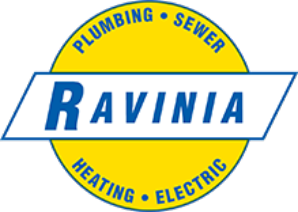
Here on Chicago’s North Shore, frigid temperatures and blustery winds can lead to high heating bills, plumbing problems, and a host of house headaches – both inside and outside! Here are a few of the things to look out for, and precautions that can help you avoid these problems.
Freezing Pipes: Pipes that are exposed to severe colds, such as outdoor spigots and supply lines in exterior walls, are at risk for freezing. The wind drives cold air into the home and around the plumbing. To prevent such issues, start by disconnecting your hoses from outdoor spigots, and, if you can, shut off the outdoor water supply. When leaving on vacation, do not set your heat lower than 55 degrees Fahrenheit. It is also recommended that you have your pipes professionally inspected every few years to ensure proper insulation and heat circulation, and make any needed repairs or replacements.
Air Leaks: Hear wind whistling around your door? Air leaks around windows and doors cause drafts. Your energy costs could rise if your furnace works harder than it should. Sealing or caulking those cracks will solve your problem. Leaking ductwork, however, is another culprit when it comes to heat loss and uneven temperatures. If you suspect this is an issue, you might have your ducts tested by a certified technician for airflow.
Ice Dams: Sparkling icicles hanging from the eaves are pretty, but they could signal a problem. When temperatures swing from above freezing to bitter cold and back again, as they often do in Chicagoland, melting and refreezing can cause ice dams – which may break shingles and cause roof leaks and mold growth. Overly warm attics are a key cause or aggravator. Ensuring that you have proper insulation and airflow in your attic can help alleviate the problem.
Carbon Monoxide:
During the winter months, when your heat is cranked higher and continuously running, the risk of carbon monoxide buildup increases. Always have a CO alarm in addition to a smoke alarm to ensure your family’s health and safety. You should have one CO detector on every floor and within 15 feet of every gas burning appliance and every bedroom (which is Illinois law). Also, the sensor in a CO detector does not last more than five to 10 years. Older CO detectors should be replaced.
Winter in Chicagoland may get cold and snowy, but it is also the season of snowmen, holiday cheer and hot chocolate by the fire. By taking a few precautionary steps, you can steer clear of potential issues with your heating and your plumbing and enjoy your home’s unique, simple pleasures.
